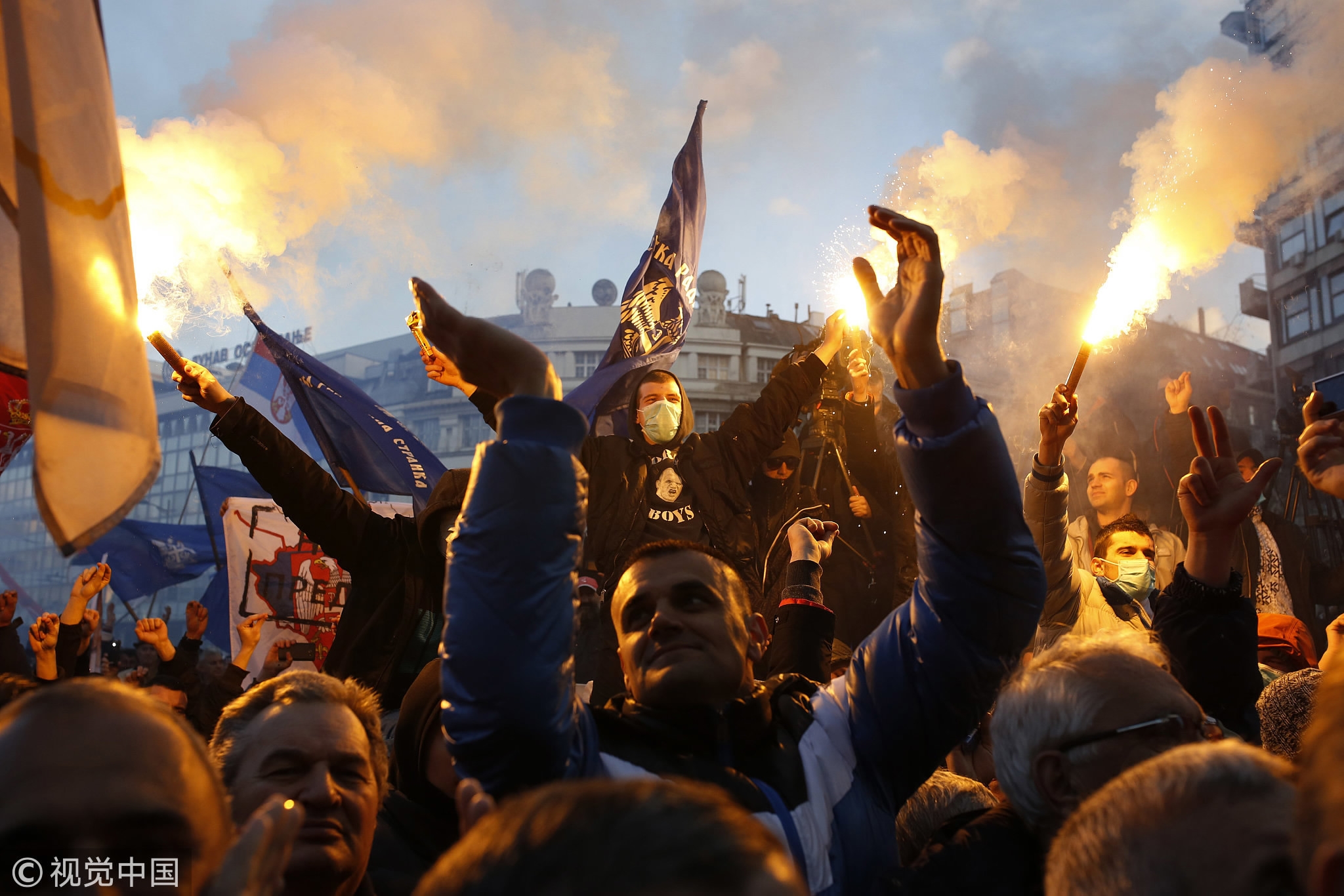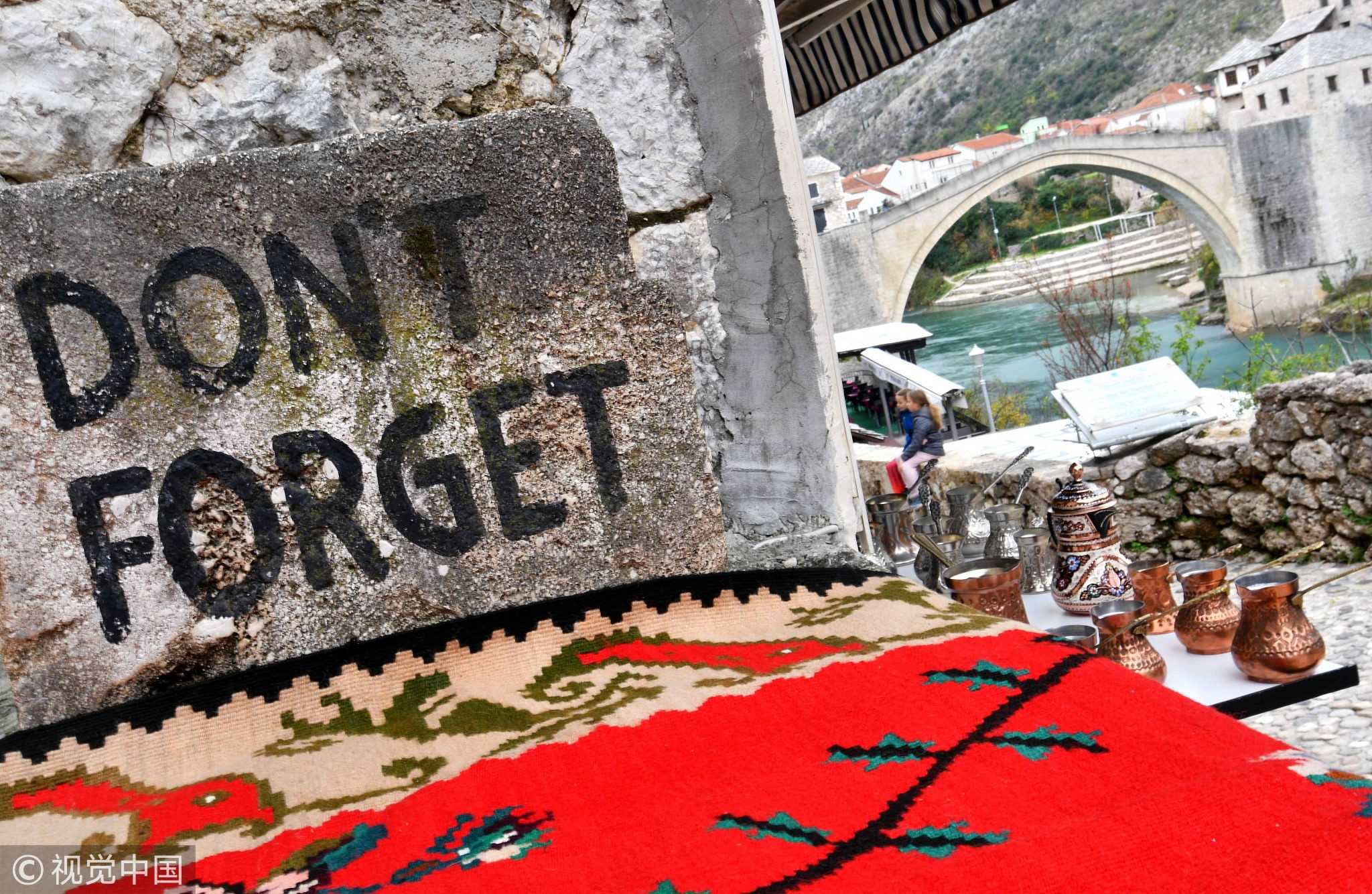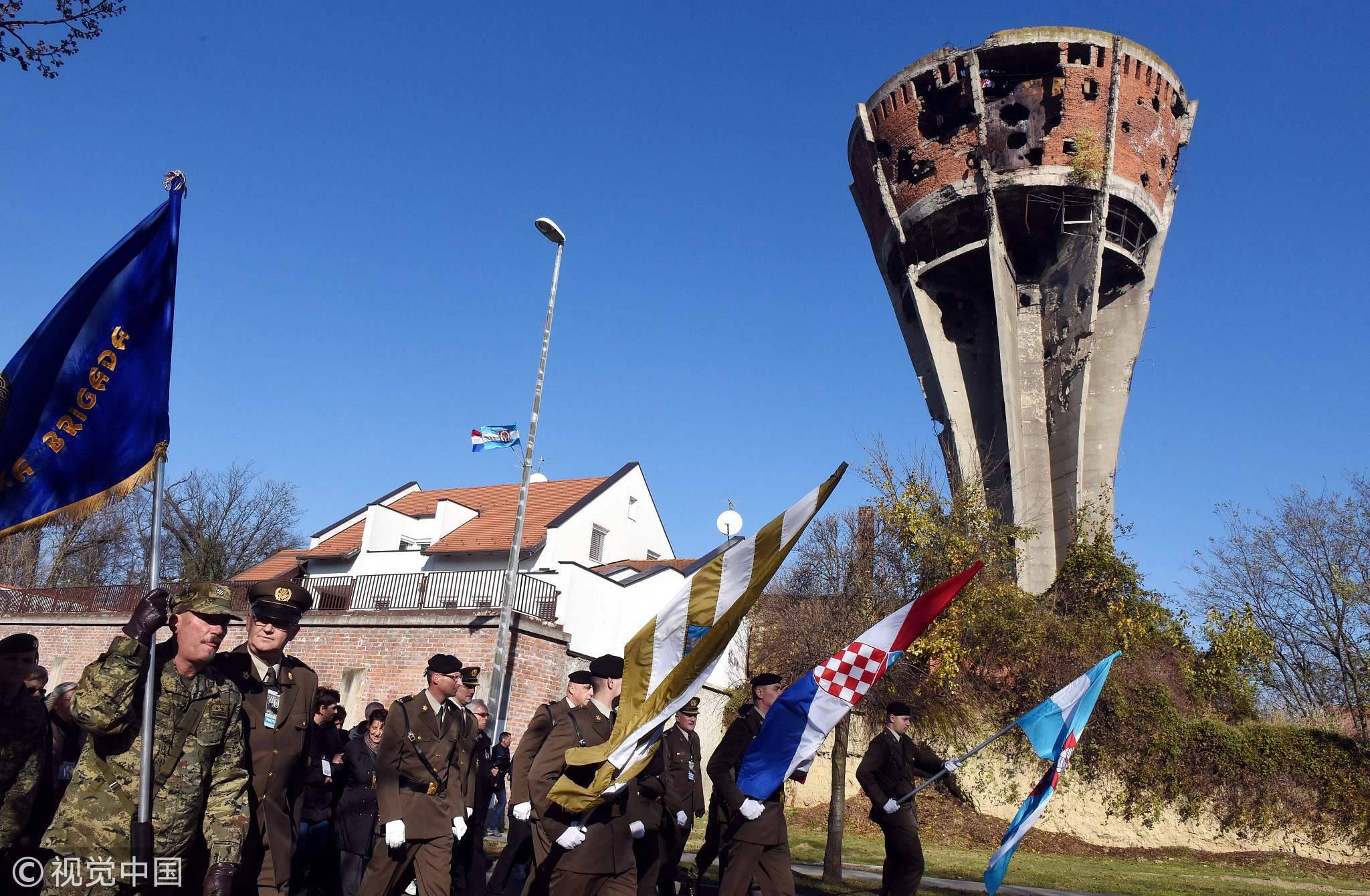
World
16:28, 12-Apr-2018
UN court overturns Seselj's war crimes acquittal
CGTN

A UN court overturned on Wednesday the shock 2016 acquittal of Serbian ultra-nationalist Vojislav Seselj, accused of war crimes and crimes against humanity in the former Yugoslavia in the 1990s.
The 10-year prison sentence handed down by the court amounts however to time already served, as Seselj spent 12 years in detention pending trial, meaning he now walks free.
The 63-year-old, who was not present in the court in The Hague, the Netherlands, as UN judges read his sentence, remained unrepentant after the ruling, telling AFP news agency that he was “proud” of the crimes he was convicted of and was “ready to repeat them in the future.”

Supporters of Serbian ultra-nationalist leader Vojislav Seselj light flares during an anti-government rally in Belgrade, Serbia, March 24, 2016. /VCG Photo
Supporters of Serbian ultra-nationalist leader Vojislav Seselj light flares during an anti-government rally in Belgrade, Serbia, March 24, 2016. /VCG Photo
The International Criminal Tribunal for the former Yugoslavia (ICTY) acquitted Seselj in March 2016 of all charges against him, including deportation and murder.
Judges said at the time that prosecutors had “failed to prove beyond all reasonable doubt” or provide sufficient evidence that Seselj was responsible for the crimes he had been charged with, prompting sharp criticism from law experts and historians.
The ruling
On Wednesday, the UN court, which took over from the ICTY after the latter ended proceedings in December, partially overturned the 2016 ruling, finding Seselj guilty of three counts of crimes against humanity – persecution, deportation and inhumane acts – but upholding his acquittals on the six counts of war crimes, including murder and torture.
The 2016 verdict had "ignored a substantial portion of highly relevant evidence… or it erred in fact," the judges said.
The crimes
Prosecutors had sought a 28-year sentence against Seselj during the original trial, which lasted over eight years, holding him “individually criminally responsible” for a range of crimes.
The ICTY indictment sheet said the firebrand politician, who was a close ally during the Balkan wars of then Serbian leader Slobodan Milosevic, “made inflammatory speeches” instigating Serb forces in Croatia and Bosnia and Herzegovina to commit crimes.

A picture taken on November 27, 2017, in Mostar, Bosnia shows a sign near the 'Old Bridge,' a symbol of Bosnia's devastation in the 1990s war. /VCG Photo
A picture taken on November 27, 2017, in Mostar, Bosnia shows a sign near the 'Old Bridge,' a symbol of Bosnia's devastation in the 1990s war. /VCG Photo
He also “espoused and encouraged the creation of a homogeneous ‘Greater Serbia’… by violence, and thereby participated in war propaganda and incitement of hatred towards non-Serb people,” it said.
The 2016 ruling found that Seselj was merely "participating in the war effort by galvanizing the Serb forces."
On Wednesday however, the appeals judges ruled that his fiery rhetoric – including a speech in Hrtkovci, Serbia in May 1992 – “substantially contributed" to the persecution and deportations of non-Serbs, including Croats and Bosnian Muslims.
Reactions
Speaking from Belgrade where he returned in 2014 to undergo treatment for colon cancer and where he is now a member of parliament and leader of the Serbian Radical Party, Seselj insisted Wednesday that "the verdict is against the law."
The tribunal "lied that there were systematic persecutions of Croats in Hrtkovci," he said.

Croatian army officials lead a procession in Vukovar, Croatia on November 18, 2016, to mark the 25th anniversary of the town's fall to Serb forces, the bloodiest episode of Croatia's 1991-1995 independence war. /VCG Photo
Croatian army officials lead a procession in Vukovar, Croatia on November 18, 2016, to mark the 25th anniversary of the town's fall to Serb forces, the bloodiest episode of Croatia's 1991-1995 independence war. /VCG Photo
"No Croat was expelled from Serbia; all those who left exchanged their property with Serbs" forced out of Croatia at the time, he added.
Senior prosecution official Aleksandar Kontic told journalists they "welcomed the judgment."
But the families of some of those killed by Serb forces were left with a bitter taste.
"This is not normal. People are being sentenced to harsher sentences of 20 or 30 years in prison for financial crimes. Here it was a massacre and he was one of the main perpetrators,” one resident of Sarajevo, Bosnia, told AFP.
Another, whose daughter was killed during the Sarajevo siege described Seselj’s sentencing to time already served as “a compromise solution.”
“Because, really, everything Seselj did before the attack, during the attack, we know that he commanded units that were directly involved in the crimes. This sentence is really not appropriate."
(With input from agencies)
(Top picture: Serbian ultra-nationalist and presidential candidate Vojislav Seselj speaks during a rally in Belgrade, Serbia, March 25, 2017. /VCG Photo)
7883km

SITEMAP
Copyright © 2018 CGTN. Beijing ICP prepared NO.16065310-3
Copyright © 2018 CGTN. Beijing ICP prepared NO.16065310-3